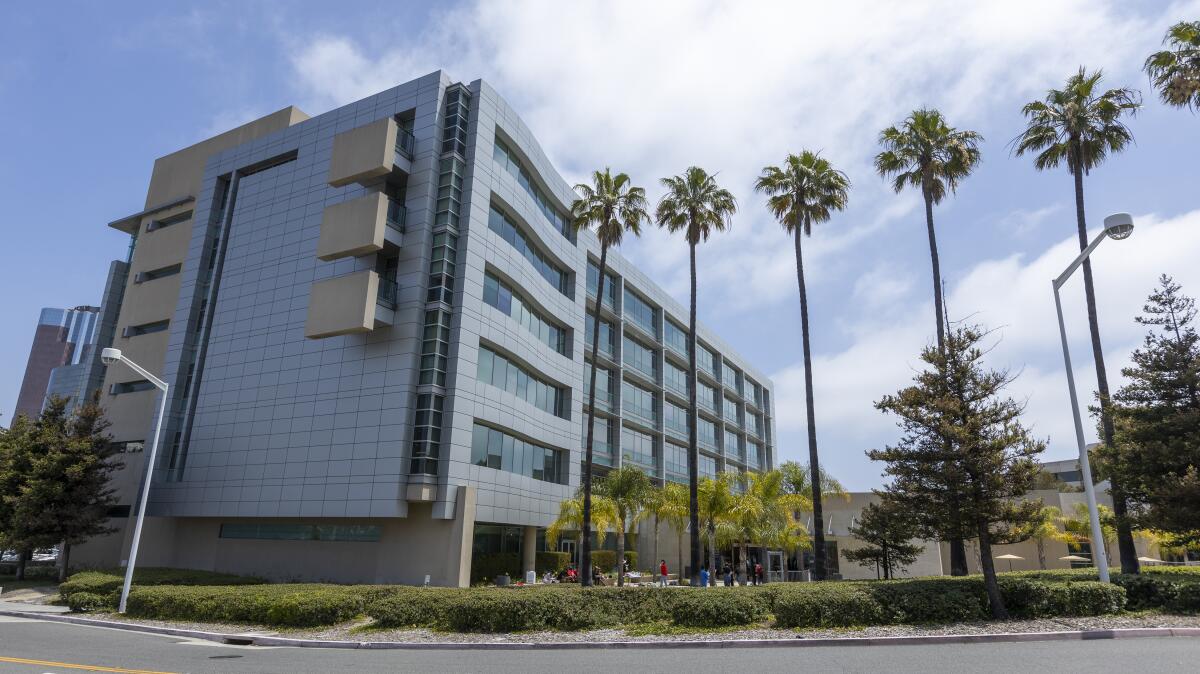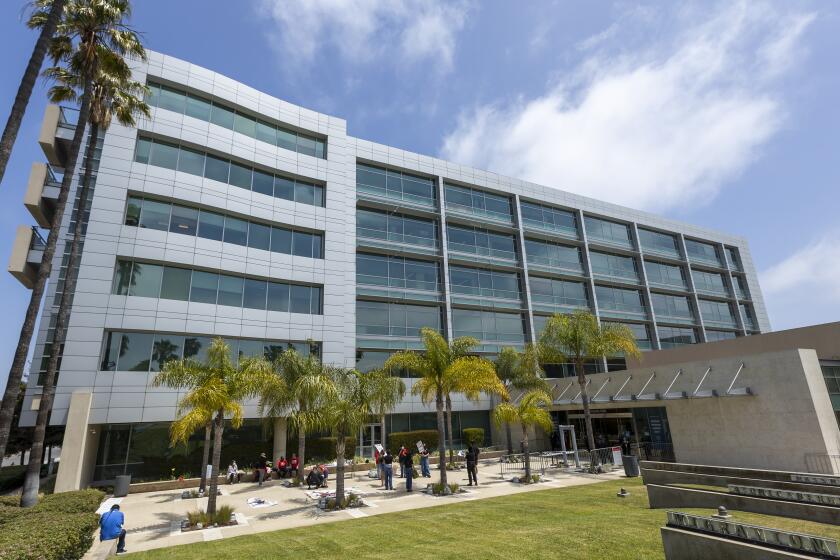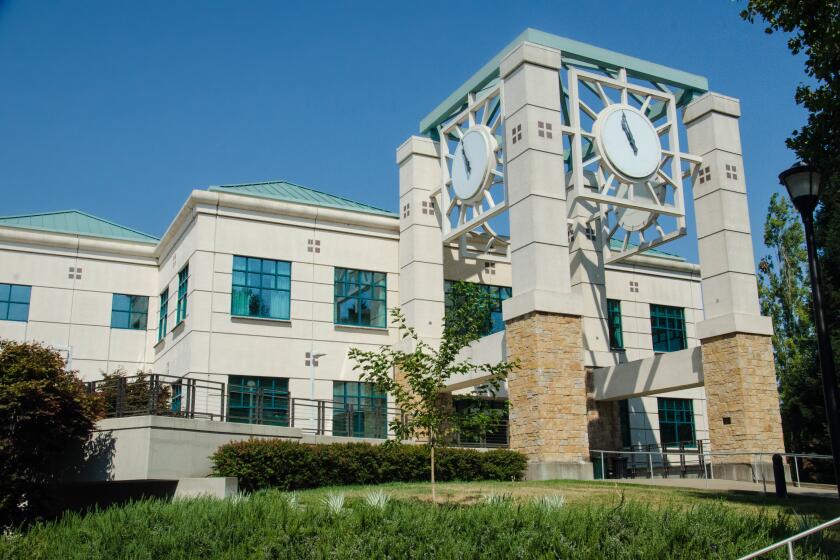S.F. State employee who oversaw sexual misconduct and discrimination cases alleges retaliation

- Share via
A former San Francisco State University employee who oversaw the handling of sexual misconduct and discrimination cases alleged that the campus president and an official with the state university system tried to interfere with an investigation into harassment allegations against a professor and said that the school failed to properly investigate hundreds of claims of wrongdoing.
In a 20-page complaint filed Wednesday against the campus and the California State University system, Heather Borlase said that she was terminated last summer after she launched an investigation into multiple Muslim students’ complaints that a professor showed a drawing of the prophet Muhammad in his Islamic studies class without warning or reason.
Borlase alleged that San Francisco State President Lynn Mahoney and CSU Vice Chancellor of Human Resources Leora Freedman believed the professor’s actions were protected under academic freedom and asked Borlase to halt the investigation. But Borlase said that a probe was necessary to determine whether the professor’s actions constituted religious harassment. Visual depictions of Muhammad are considered offensive for many Muslims.
Freedman wanted to offer time “for the parties to reach an informal resolution,” according to the complaint, and took the case from Borlase in April 2023. Roughly a week later, after the case faced public criticism by an outside advocacy group, Borlase said she was placed on administrative leave and learned months later that her job would not be reinstated. According to the complaint, she was told the decision was “in the best interest of the university.”
An investigation commissioned by the university found the manager engaged in “unwelcome conduct” based on the worker’s race.
The university said that “the change wasn’t made to influence the outcome of any investigation.”
“Like all CSU campuses, S.F. State takes seriously its responsibility to provide students and employees a safe learning and working environment,” director of communications Bobby King said. “Different leadership was desired to lead work in the department, which was already happening to improve processes and outcomes.”
Borlase claimed that she inherited more than 400 unresolved cases of harassment, misconduct and discrimination when she started in 2021 and had received pushback from university officials who “expressed concern about the exposure” when she tried to address the reports.
According to the complaint, the university “encouraged her to only work on the most egregious cases involving current students or faculty. Ms. Borlase insisted on bringing all cases into compliance.”
In one instance, an investigation into sexual harassment allegations against a professor found that people were dissuaded from bringing such claims forward. But Borlase said she was discouraged from taking corrective action that could put the university “in a negative light,” the complaint said.
In another instance, an investigation found that a campus administrator had racially harassed an employee, calling them “a runaway slave.” According to the complaint, Borlase was asked to “downplay the university’s failure to act when concerns ... were first raised.”
“S.F. State’s failure to timely respond to student and staff complaints, its interference with the integrity of investigations, and scapegoating and terminating Ms. Borlase cannot be condoned,” said Katherine Smith, one of the attorneys representing Borlase.
Recent revelations about how California State University handled sexual harassment and workplace retaliation complaints have rocked the nation’s largest four-year public university system.
Borlase’s concerns coincided with CSU’s examination of its policies around Title IX — the federal ban on sex discrimination — following multiple accounts of inconsistencies over how university officials handled complaints of sexual misconduct and retaliation. On several of CSU’s 23 campuses from San Diego State University to California State University Maritime Academy, Times investigations found that students and employees lacked confidence in the Title IX process and often feared that their issues would be ignored. A Times analysis of complaints from the 2021-2022 school year found that about 3% of more than 2,600 reports of sexual harassment and sexual misconduct were formally investigated.
“It is critical for students to know it is safe to come forward and when they do, their complaints will be fairly investigated,” said Wendy Musell, another attorney for Borlase.
Shortly before Borlase’s dismissal last year, the Cozen O’Connor law firm shared a report with CSU’s Board of Trustees and the university community that found flaws in how CSU campuses collect data, widespread distrust by students and employees in how wrongdoing is addressed and a low number of investigations.
A state audit found similar breakdowns. And in a push for broader accountability, Gov. Gavin Newsom signed a law that would require the CSU system to disclose the outcome of sexual harassment cases and investigations.
The CSU is the largest four-year public university system in the nation. It has previously said that it will make changes to its handling of complaints and is hiring additional staff to improve its investigative process.
“Transforming culture is not easy or quick. It takes time and significant resources,” Board Chair Wenda Fong told The Times last year.
More to Read
Sign up for Essential California
The most important California stories and recommendations in your inbox every morning.
You may occasionally receive promotional content from the Los Angeles Times.













